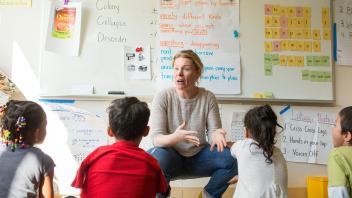Some of my teacher friends are nervous about the call within the Common Core State Standards for more informational texts in the classroom. Couple informational texts with recommendations to have students read widely and deeply from increasingly challenging texts, and I’ve got a couple of worried friends!
There’s nothing quite like working with a group of students with a text that is (1) hard for them to read, and (2) doesn’t immediately grab their attention.
One resource that can help teachers think about text complexity is 7 Actions that Teachers Can Take Right Now: Text Complexity from TextProject. Today I’ll share about creating connections, one of the actions described by Dr. Hiebert, and encourage you to read the rest of the article to learn the other actions.
We all remember learning about schema theory, and the value of helping kids make connections between something they know and something new. These are the cognitive “hooks” that we have children “hang” new knowledge on. With the CCSS, teachers are encouraged to emphasize the text as the source of knowledge. While this is true, there is still value in helping students make the connection between a text and something they already know.
Dr. Hiebert recommends using the acronym KNOWS as a way to guide students in making connections:
K: Did I draw on students’ existing knowledge and experience?
N: Did I identify what new knowledge can be gained from this text and guide students in gaining it?
O: Did I support students in organizing their new knowledge with their existing knowledge/experiences?
W: Did I show students ways to widen their knowledge?
S: Did I support students in sharing their knowledge?
Of these, I find the “widen” element the most compelling. I hope to write more about that later. I’ve shared this article and talked about KNOWS with my friends. How about you? Does this framework for thinking about making connections with new knowledge seem useful to you?

